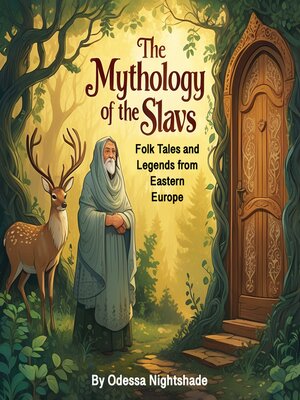The Mythology of the Slavs
audiobook (Unabridged) ∣ Folk Tales and Legends from Eastern Europe
By Odessa Nightshade

Sign up to save your library
With an OverDrive account, you can save your favorite libraries for at-a-glance information about availability. Find out more about OverDrive accounts.
Find this title in Libby, the library reading app by OverDrive.



Search for a digital library with this title
Title found at these libraries:
| Library Name | Distance |
|---|---|
| Loading... |
Slavic mythology is a rich and complex tradition that has been shaped by centuries of oral storytelling, cultural exchanges, and historical transformations. Rooted in the beliefs of ancient Slavic tribes, this mythology reflects a deep connection to nature, a reverence for powerful deities, and a world teeming with spirits, gods, and legendary heroes. Unlike the more widely documented mythologies of the Greeks and Romans, Slavic myths were primarily passed down through oral tradition, making them fluid and ever-evolving. As a result, variations exist across different Slavic nations, yet common themes and figures remain central to the mythology as a whole.
The natural world played a crucial role in shaping Slavic beliefs. The Slavs were deeply tied to the cycles of the seasons, the power of the sun, and the mysteries of the forests and rivers. Deities like Perun, the god of thunder, and Veles, the god of the underworld, represented the dual forces of order and chaos, life and death. Forest spirits like the Leshy guarded the woods, while the Rusalka, eerie water nymphs, were believed to lure unsuspecting travelers to a watery grave. These myths not only explained the forces of nature but also provided a spiritual framework for daily life.
Storytelling was the primary means of preserving these myths. Legends were shared around fires, during village gatherings, and at seasonal festivals. Oral tradition allowed for constant reinterpretation, with each storyteller adding new details to fit the cultural and historical context of their time. Folklore heroes, such as Ilya Muromets and Dobrynya Nikitich, emerged as symbols of courage and perseverance, their tales reinforcing the values of strength, loyalty, and wisdom. These stories also carried moral lessons, cautioning against greed, deceit, and disrespect for the natural and supernatural world.







